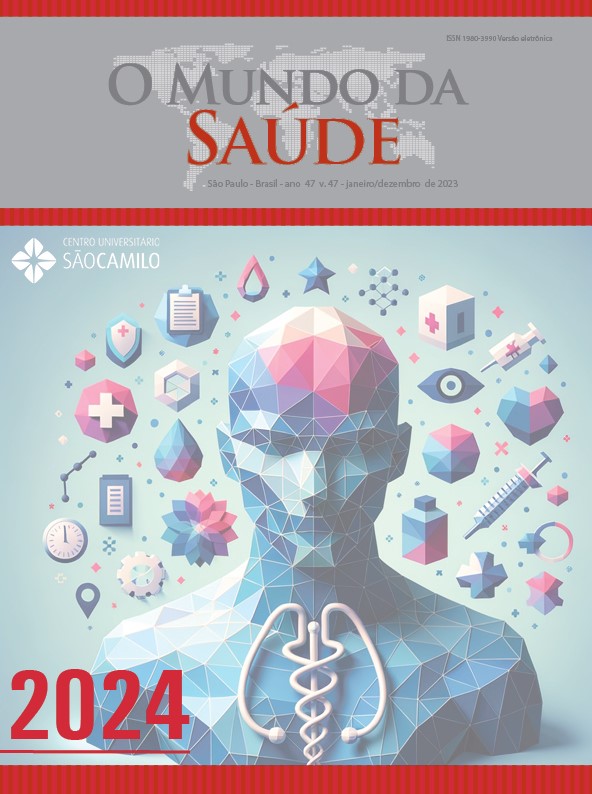The need for a paradigm shift and people management – the case of an Integrated Responsibility Center
DOI:
https://doi.org/10.15343/0104-7809.202448e16292024PKeywords:
Management, Organizational Change, HealthcareAbstract
In recent decades, the healthcare sector has faced significant challenges arising from technological advancements, demographic changes, and socioeconomic pressures, exacerbated by population aging. In Portugal, factors such as the SARS-CoV-2 pandemic and the emigration of healthcare professionals have worsened these issues. To address these challenges, healthcare organizations have implemented people management practices focused on continuous training, talent retention, and incentives, aiming to improve employee satisfaction and the quality of care provided. However, resistance to the traditional centralized management model remains an obstacle to adapting to current demands. In this context, the creation of Integrated Responsibility Centers (IRC) stands out as a solution to overcome the limitations of these outdated models. The aim of the study was to analyze the effects of changes in people management in the healthcare sector, with a focus on public hospitals, and to understand how the Ophthalmology IRC reflects new people management practices. The methodology consisted of a qualitative case study, including document analysis, bibliographic research, and interviews conducted with healthcare professionals (nurses) from the IRC. The results indicate that the IRC is perceived as a reference institution that offers attractive and transparent working conditions, demonstrating a strong concern for the organization's reputation. It is concluded that the IRC adopts a decentralized management model that promotes autonomy and continuous professional development, resulting in greater satisfaction, commitment, and efficiency in the care provided.
Downloads
References
European Commission. 2021 Ageing Report: Ageing populations and fiscal sustainability [Internet]. 2021 [acesso 2024 Nov 9]. Disponível em: https://economy-finance.ec.europa.eu/system/files/2022-05/2021_ageing_report_0.pdf
World Health Organization. Global strategy on human resources for health: Workforce 2030. Who [Internet]. 2016;64. Disponível em: https://www.who.int/publications/i/item/9789241511131
Cavaco AR. Mais de 2000 enfermeiros pediram para sair de Portugal desde o início da pandemia [Internet]. Diário de Notícias. 2021. Disponível em: https://www.dn.pt/sociedade/mais-de-dois-mil-enfermeiros-pediram-para-sair-de-portugal-desde-o-inicio-dapandemia-14480596.html
Chiavenato I. Gestão de Pessoas - O novo papel dos recursos humanos nas organizações. São Paulo; Manole. 2014. 494 p.
Collings DG, Mellahi K. Strategic talent management: A review and research agenda. Hum Resour Manag Rev [Internet]. 2009;19(4):304–13. Disponível em: http://dx.doi.org/10.1016/j.hrmr.2009.04.001
Martin A. Talent Management: Preparing a “Ready” agile workforce. Int J Pediatr Adolesc Med [Internet]. 2015;2(3–4):112–6. Disponível em: http://dx.doi.org/10.1016/j.ijpam.2015.10.002
De Vos A, Dries N. Applying a talent management lens to career management: The role of human capital composition and continuity. Int J Hum Resour Manag. 2013;24(9):1816–31.
Cabrita M do R. Capital intelectual e desempenho organizacional. 2009;224.
Rego A, Cunha MPE, Gomes JFS, Cunha RCE, Cabral-Cardoso C, Marques CA. Manual de Gestão de Pessoas e do Capital Humano. 3aEdição. Sílabo E, editor. Lisboa; 2015. 896 p.
Fornes SL, Rocco TS, Wollard KK. Workplace commitment: A conceptual model developed em integrative review of the research. Hum Resour Dev Rev. 2008;7(3):339–57.
Gomes D. Psicologia Das Organizações do Trabalho e dos Recursos Humanos [Internet]. Companions C, editor. Coimbra; 2011. Disponível em: http://hdl.handle.net/10316.2/31226
Peloso AC, Yonemoto HW. Atração , Desenvolvimento e Retenção de Talentos: Programa de Trainees. In: Etic - Encontro De Iniciação Científica, 1 [Internet]. 2010. Disponível em: http://intertemas.toledoprudente.edu.br/index.php/ETIC/issue/view/37
Sousa WB de, Barreto MC. A Importância Das Estratégias Para a Retenção De Talentos. Rev Raunp. 2015;7(2):9–15.
Rivero; AG, Dabos GE. Gestión diferencial de recursos humanos: una revisión e integración de la literatura. Estud Gerenciales [Internet]. 2017;33(75):23–33. Disponível em: https://dialnet.unirioja.es/servlet/articulo?codigo=5973267
Mike Ulrich, David Kryscynski, Wayne Brockbank DU. Victory Through Organization-Why the War for Talent is Failing Your Company and What You Can Do about It. Education MGH, editor. Vol. 11. New Jersey; 2017.
Bounassar C. O papel do líder na cultura de segurança. Latindex, editor. Segurança Comport. 2021;14:36–40.
Antunes M de L. Os 7 Princípios de Gestão da Qualidade _ SGS Portugal [Internet]. 2022 [acesso 2024 Nov 9]. Disponível em: https://www.sgs.com/pt-pt/noticias/2022/03/os-7-principios-de-gestao-da-qualidade
Proença M. A saúde no Século XXI [Internet]. Correio do Minho. 2022 [acesso 2024 Nov 8]. Disponível em: https://correiodominho. pt/cronicas/a-saude-no-seculo-xxi/14330
Rodrigues C. Governação de Organizações Públicas em Portugal - A Emergência de Modelos Diferenciados. Edições Pegado L, editor. 2011.
Ministério da Saúde. Decreto-Lei n.o 374/99, de 18 de setembro [Internet]. Diário da República 1a série-A 1999 p. 6489–93. Disponível em: https://dre.pt/dre/detalhe/decreto-lei/374-1999-569893
Greenhalgh T. How to read a paper- The basics of evidence-based medicine and healthcare. 6th ed. Blackwell W, editor. Oxford; 2019. 6 p.
Lacombe F, Heilborn G. Administração: Princípios e Tendências. 2nd ed. Saraiva, editor. São Paulo; 2008. 546 p.
Munck L, Londrina. Alinhamento Entre Estratégia E Competências : Um Estudo Teórico-Empírico Em Uma Empresa De Serviços De Interesse Público. Reuna. 2011;16:71–88.
Brown P, Sadik S, Lauder H, Sung J, Freebody S. Talent Management in Dynamic Times - Em ‘War for Talent’ to ‘Wealth of Talent.’ Rev Hum Resour Manag J. 2018;(September):1–7.
Almeida L. A importância da Comunicação Interna para a Motivação dos Colaboradores. Exedra Rev Científica ESEC [Internet]. 2013;(8):91–103. Disponível em: www.exedrajournal.com
Aamodt MG. Industrial Organizational Psychology: An Applied Approach. 6th ed. Learning WC, editor. Belmont; 2009. 684 p.
Downloads
Published
How to Cite
Issue
Section
License
Copyright (c) 2024 O Mundo da Saúde

This work is licensed under a Creative Commons Attribution 4.0 International License.






























